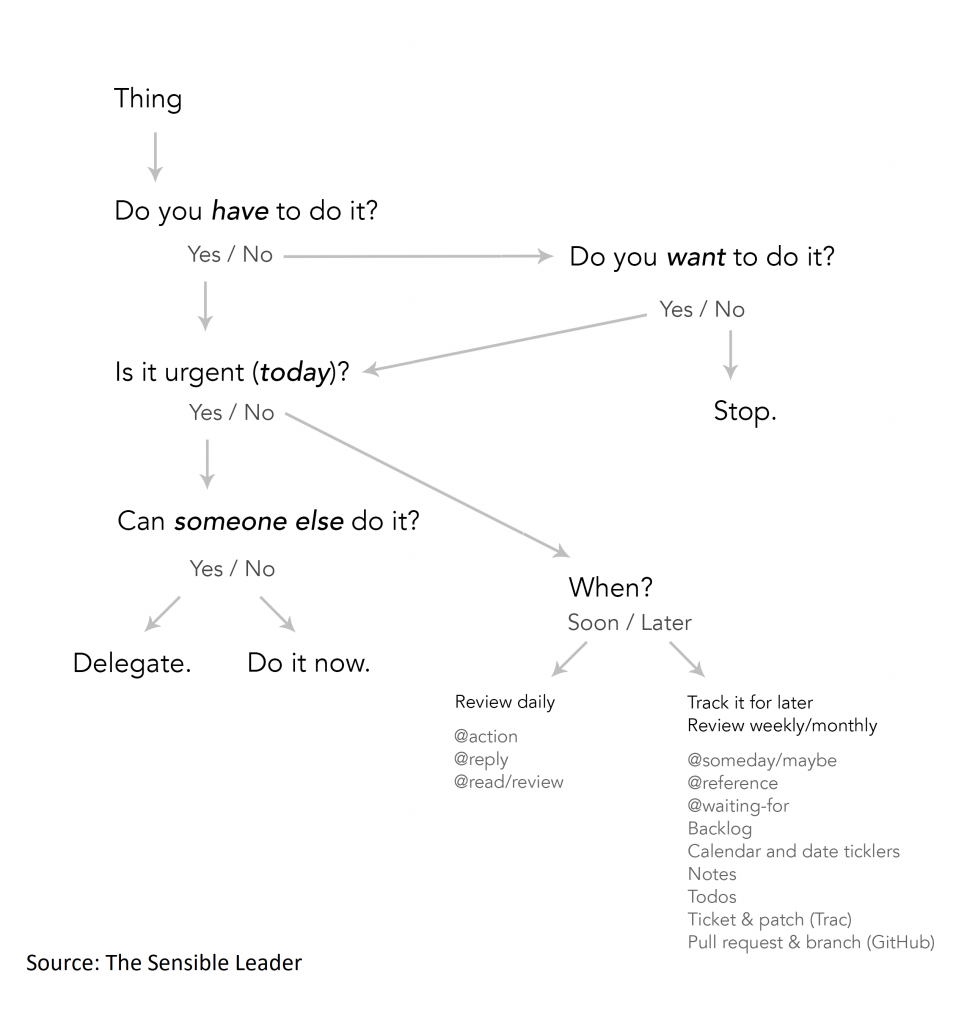Time is the most important asset that we have, and it’s the most difficult one to manage for researchers and grad students. Academia is one of the few sectors where it’s not only expected that you will be cramped with time, it’s pretty much part of the job.
You have so many tasks that you need to complete, everything from writing research papers, grants, applications, conferences, and don’t forget about teaching and supervision! The list just goes on and on. So how do we handle all of this?
There’s no one size fit all answer, but there are some tricks that you can use to try to make it more efficient. Below, I’ve summarized 7 tips on how to start managing your time better.
1. Compartmentalize your tasks based on their urgency and importance
You need to establish a protocol for how you will deal with your daily tasks. Just like the ER at a hospital, you need to triage the situation. A person with a gun shot wound will be treated before a person who broke their wrist, no matter how long that person with the wrist injury has been waiting. Similarly, you need to organize your tasks in terms of their urgency and importance. Look at the chart below:

2. Swallow the ugly frog first
Always do the task that fills you with the most anxiety first! If you are forced to eat three ugly frogs, you begin eating the biggest, nastiest looking one. That way, once you’re finished, the rest will be easier.
This means: don’t start out the day by answering email! Unless it’s an urgent message, you have tasks that are more important and that require more thought, begin with those! The easy stuff you do later.
3. Consistency saves you time
Avoid procrastinating and allowing tasks to pile up. Instead, work in short bursts of time, over an extended period of time. We talked about this in an earlier post in relation to writing, never save all your writing for later, always write a little bit at a time. By being consistent, you will start completing more and more tasks, and eventually be closer to whatever goal you’ve set up.
4. Appreciate the value of time
By killing time you are actually killing yourself! At the end of the day, humans are but a collection of hours, minutes and seconds. We won’t be able to manage our time correctly until we give time it’s due right.
As human beings, we can alternate between being sick and healthy, sometimes be broke or wealthy but none of us has the capacity to bring back as much as a second back that has passed. It’s the most precious and unreplenishable asset we have; if you remind yourself of this, you won’t waste it as much.
5. Be strict on yourself (but lax with others)
Always establish reasonable personal deadlines (before the deadlines that others impose on you). Compose a list of all the tasks that need to be done and make sure that they are connected to fixed times. Every major task has a deadline set to it, and every major task should be worked on every day until you finish that task. For instance, if you are writing an important paper, you need to write a little bit everyday and if there’s not a lot of time left for writing on a particular day, you then write less but you still make sure to write!
Just because you are strict on yourself doesn’t mean that you should be equally strict on others. Have some empathy and make sure to give other people some slack from time to time, I’m sure you would have appreciated it yourself in a similar situation.
This means giving your supervisor some slack if they didn’t have time to meet you this week, or to give your grad student some slack if they missed something. In the end, we are all humans striving for something better.
6. Learn how to say NO!
Being helpful is always a good characteristic. However, you also need to know when to say no. Are you involved in too many extracurricular activities? Well, maybe you need to trim down on the activities that don’t bring much value to you and focus more on the things that do. Leaning how to say no will save you from taking part of disturbing distractions that will forever keep you at your current state. This brings us to the last point.
7. Watch out for distractions
If you have a specific time for your research, you should be very aware of not indulging in time consuming worthless activities such as checking your e-mail daily, text messages on your phone and the list goes on…


